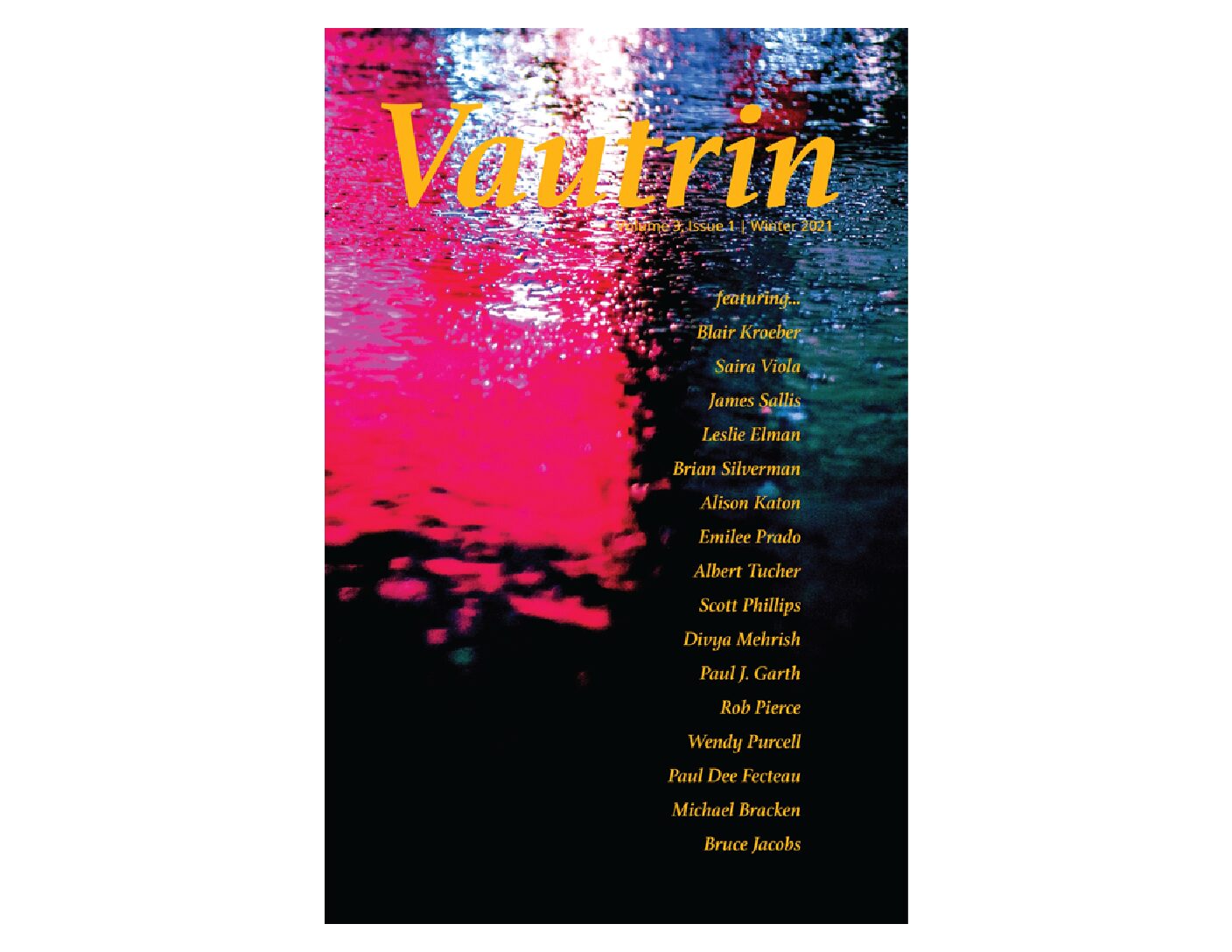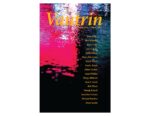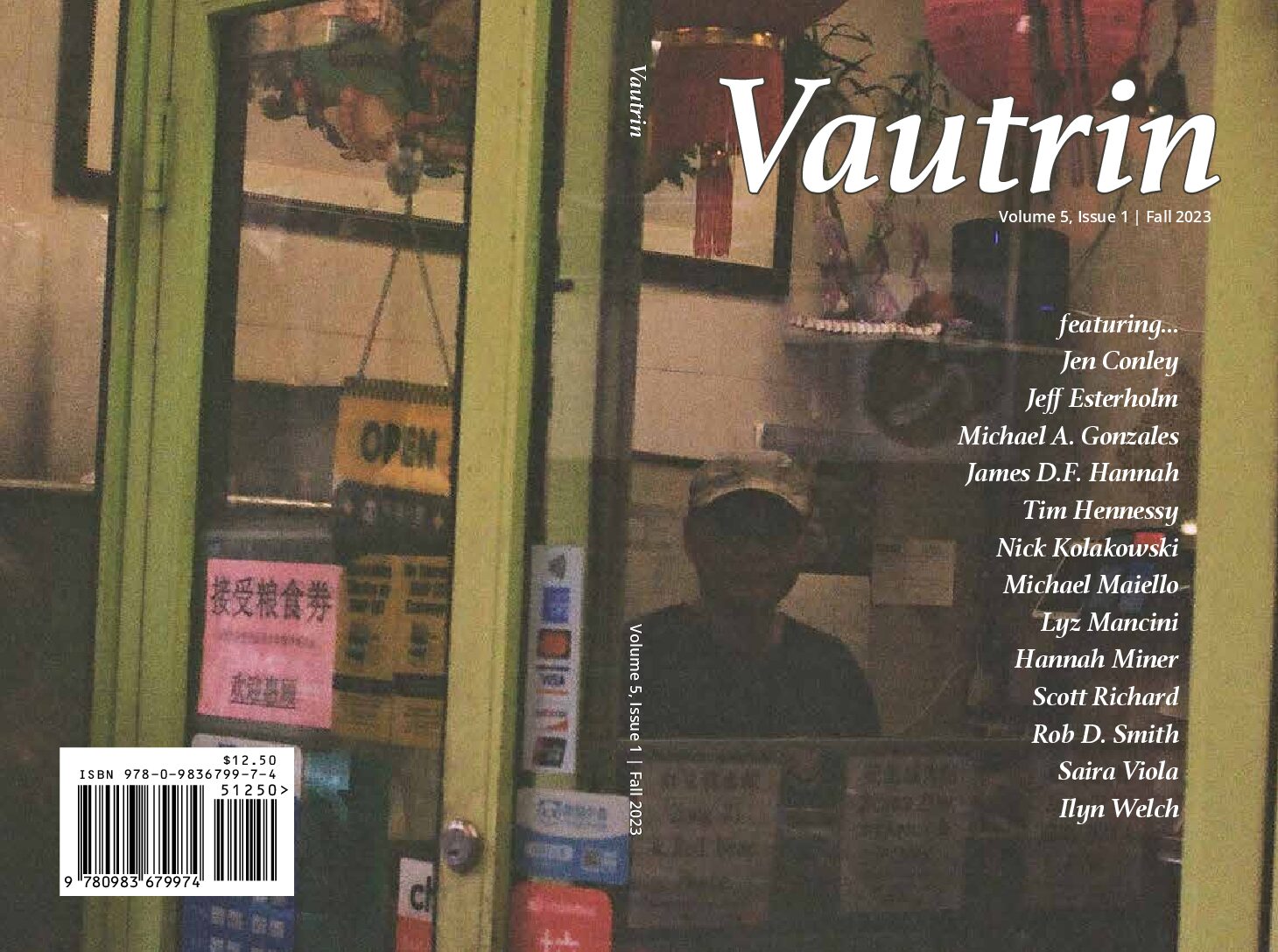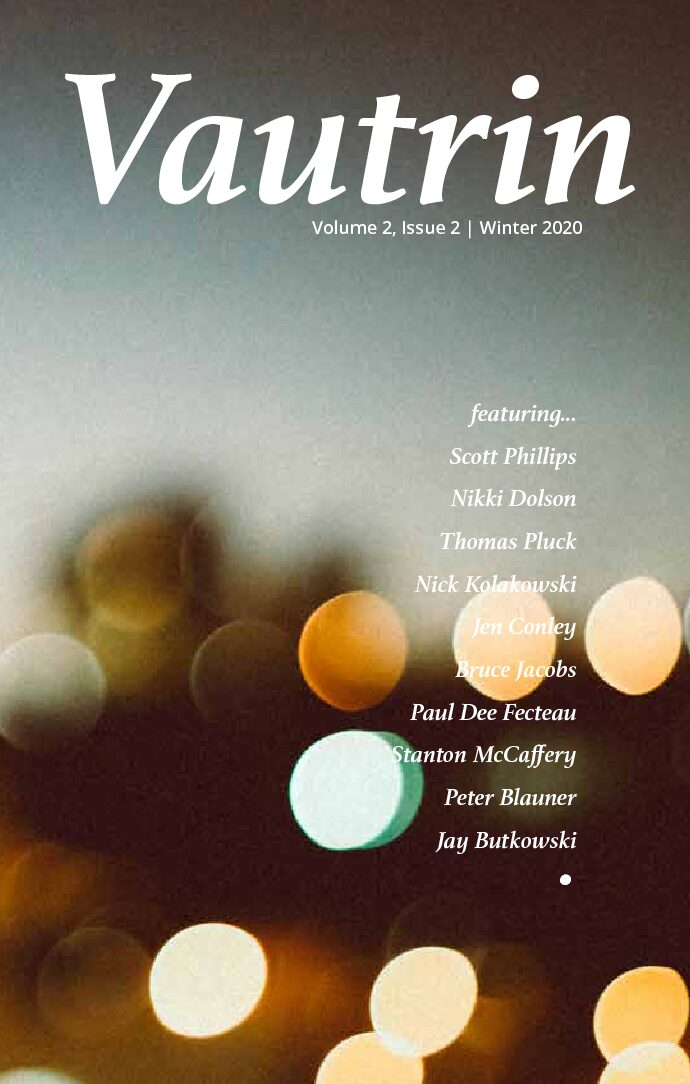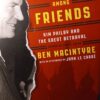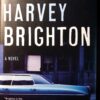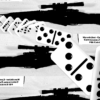Guy walks up to you in the potato chip aisle. Looks like he’s had a rough week. He starts in that he was throwing bread to the ducks when someone snatched his vaping pen. He gave chase but tripped on a small lizard. Hit his head on splintery plywood.
Which is when… it’s like he saw the moons of Jupiter.
He heard shots, sirens off in the distance. Came to in the throes of a noir jones. Not to mention he was in a different town. It’s the one he’s in now, talking to you. Can you loan him twelve bucks to buy Vautrin?
This is not the kind of pitch you typically go for, but here’s the thing: a couple months back, someone stole your vaping pen as you gave a stray cat a saucer of milk.
Buy now: https://www.watermarkbooks.com/book/9780983679950
Off you go, twelve dollars lighter, potato chips and dip in hand. You’d forgotten Jupiter has moons.
But when Vautrin arrives a week or so later, it contains fifteen short stories and a review of Tod Goldberg’s Sal Cupertine novels.
One way to do it—read the issue front-to-back, though the vaping pen imbroglio suggests otherwise.
So, start with Paul J. Garth. “Aperture.” Jefferson is a photo journalist, struggling with a penchant for rye, on assignment in a Midwestern landscape. He’s alone with the pressure, plagued by guilt and regret. Then he begins to improvise and things shift.
The first line of Blair Kroeber’s “Gingerbread” runs, “They met out back a vegan-friendly ice cream shop in Mar Vista, after-hours, the sun drooling out of the sky like a runny egg yolk.” Kendra works as a small-time thief, and Gingerbread has a request.
Leslie Elman’s “The Troll Was An Old Man” picks up with four accomplished women at the funeral of Virgil Vines, who heckled them with e-mails and public comments. You get the inner life of each woman in a story that opens as a character study on the way to something else.
The stories so far have used variations on third-person narration. With Emilee Prado’s “Envy the Animals,” though, it’s all about the speaker, P.I. Evie Grayson, who’s in the midst of unresolved tension with her ex-boyfriend. Evie’s droll point-of-view is the draw.
Cut to Alison Katon’s “Godspeed,” which details, in stream-of-conscious narration, the character Megan’s attempt to escape the suffocating isolation of small-town Wisconsin. In the company of three grifters, she embarks on a fateful trip to Chicago.
Meanwhile, in Brian Silverman’s “Where the Happy People Go,” Phil Trullo has different problems. It’s New Year’s Eve, but before he can chill, he needs to knock out a couple errands. His boss might start to notice, for instance, if Phil keeps letting guys slide on what they owe. And some creepy dude has started to trifle with Phil’s girlfriend. But something else is up with Phil, a feeling that he can’t seem to shake.
The prose hits you like a round of Stoli in Saira Viola’s “Monkey Fizz.” Kat Sloane could do with a shot of cash. She’s in debt to a nasty shark named Milky Kong, and her posh friends have a rule about money: it’s not fit for polite conversation. That means Kat’s getting on with plan B in Viola’s richly depicted tale of manners and desperation.
Michael Bracken sounds familiar. Haven’t you seen his stories in various “best of” anthologies? You dive right in with “Crush,” an exhibition in short fiction suspense. At St. Finnian’s Academy for Young Men and Women, best friends Campbell and Jim vie for the hand of Bryce Allen, a girl who shares their taste for risk and adventure.
The characters in Scott Phillips’s work-in-progress, “Quarter Eagle,” are boxcar hobos in survival mode, making use of the rules of the jungle.
Next up, a return to first-person narration as practiced by Paul Dee Fecteau, Wendy Purcell, and Rob Pierce.
In “Liber ‘LXIII vel The Gematria of Lee Harvey Oswald,” Fecteau’s speaker is a screenwriter steeped in esoteric studies, trying to decipher hidden meanings in the aliases of JFK’s alleged assassin. The voice is more Poe than James M. Cain, intricate in search of the divine.
Wendy Purcell. In “Planting a Money Tree,” her Australian narrator Jessica just got canned, and now Jessica’s neighbor, Susan, is trying to talk Jessica into sleeping with her husband. Really.
Which brings you to the guy in Rob Pierce’s “China, My China.” He’s embarked on a quest with a mysterious companion to dig up undefined treasure. The story moves in the best tradition of noir while exploring the stuff of myth. This is what Salvador Dali would pen if he came back as an American fiction writer. “China, My China” is the piece the vaping pen guy was after all along.
But things can always get weirder. In Divya Mehrish’s “Crimson,” Carys and her associates are asked to ponder their regrets in a venue that may or may not be part of this world.
The storytelling mode stays geared to the symbolic in James Sallis’s “Revenance,” a meditation on the mystery of life itself. The characters, a physicist and a poet/anesthetist, reflect on the here and not-here, as well as experimentation, the scientific method.
Ultimately though, in the noir landscape, some level of finesse is required. This points to Diana Andrews in Albert Tucher’s “The Zen of Mickey D’s.” Diana earns her living as a prostitute operating independently. Yet no one’s truly independent, and Diana gets drawn into a quandary with a professor who likes to live close to the edge and a student who wants to seize the main chance. In this fraught milieu, Diana is Fortune herself, beset with arbitrary forces and attuned to the vagaries of the path. Build a temple in her honor.
Buy now: https://www.watermarkbooks.com/book/9780983679950
If you click on the above link and the note at Watermark Books says, “This book may be unavailable…,” it means that the store sold out of what was on the shelf, the Vautrin Editor delivered more copies, and the website is not yet showing the magazine as in-stock. Vautrin is, in fact, available and on the shelf at Watermark Books.

